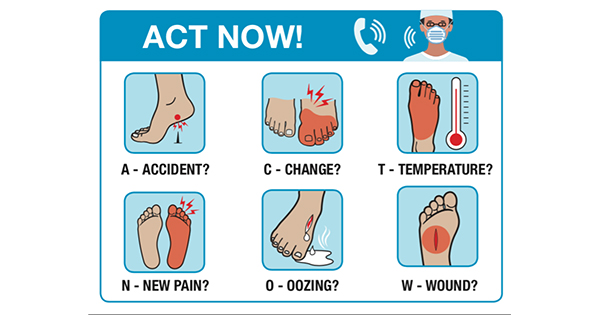It is anticipated that all general practices in England will be responsible for a budget with which to purchase secondary care and community health services for their patients – this should be in place by the end of 2006 (Department of Health, 2006a).
There may be a sense of déjà vu for those of us who experienced the GP fundholding initiative that was abolished by the Labour government in 1997. There are several similarities between practice-based commissioning and GP fundholding which may give rise to some concerns about, for example, the following (Greener and Mannion, 2006).
- Future health care provision, such as the impact of increased costs for the management and transactions involved in the commissioning of services.
- Inequalities of care.
- Perception of poorer services as a result of cost efficiencies.
When due consideration is given to the economic impact that diabetes has on the NHS and social services, and the likely spiralling costs that will accrue as a result of the increase in diabetes prevalence, an estimated 2.5 million by 2010 (Diabetes UK, 2005), commissioners must adopt a robust strategy in order to improve the quality of health care and make the best use of resources.
Commissioning for diabetes care is a complex process and requires collaboration between service providers and users so that existing good models of care can be sustained and that any new service is justifiable, cost effective and meets the needs of the local population.
One of the main thrusts of current NHS reforms is to move care from the secondary to the primary care sector. It is this policy that is probably the most challenging and problematic of all. Some of the key concerns include the following.
- Does the primary care sector have the capacity to cope with the increased anticipated activity?
- How will the commissioning process drive improvements in the secondary care sector, where their financial viability may be further compromised as new services develop in primary care?
- Will the quality of health care be further compromised with the undue haste that the reforms have been introduced with?
Multidisciplinary care
The multidisciplinary foot protection team in diabetes care is well established and is identified as the gold standard of care for all those vulnerable people at risk of significant morbidity and mortality. National Institute for Health and Clinical Excellence guidelines, among other national and international guidelines, have recognised the health benefits of this approach and have recommended their adoption.
The multidisciplinary team has traditionally resided in the hospital setting. All associated services are provided conveniently and the specialist team can collaborate with other specialities to provide timely appropriate care including hospitalisation.
It is uncertain how practice-based commissioning can preserve this model with the commitment to move care from the secondary sector to primary care. The old adage of ‘if it ain’t broke, then why fix it?’ comes very much to mind. However, the NHS reforms will be driven through by Tony Blair and Patricia Hewitt regardless, and we at the coalface have to try and see a way forward in the interests of our service users.
It is to be hoped that the recently published Diabetes Commissioning Toolkit (Department of Health, 2006c) will prove to be an invaluable asset to maintain and improve diabetes services. The toolkit is designed to provide a national framework to support decision makers to commission locally-appropriate care.
Levels of care
In chapter 4 of the Commissioning Toolkit document there is an introduction to a new vocabulary: ‘levels of care’ – this attempts to aid the discussions on levels of service. Levels 1 and 2 describe national and generic core elements of care, without stipulating where, by whom or in what order services should be delivered. The newly published National Minimum Skills Framework of Foot Care Services for People with Diabetes (Diabetes UK, 2006) fits into these levels and describe the minimum skills that NHS commissioners should consider essential when securing the best possible foot care.
This collaboration between a number of professional bodies (Foot in Diabetes UK, Diabetes UK, the Association of British Clinical Diabetologists, the Primary Care Diabetes Society and The Society of Chiropodists and Podiatrists) has provided a document at a fortuitous time – our personal congratulations to everyone involved. However, despite this and other publications (such as, Turning the Corner: Improving Diabetes Care published by the Department of Health [2006c]) there remain some major concerns. The key drivers in the NHS may well be financial ones and the additional costs of reconfiguring primary care trusts and their management, and implementing new systems to monitor all of the commissioning processes (to say nothing of payment by results), may, in our opinion, result in shortfalls in services.
One look at the national newspapers, virtually on a daily basis, highlights yet another hospital-based service that has disappeared! Is this the future for diabetic foot care services? Many colleagues have expressed their dismay at the prospect of the demise of the hospital-based diabetic foot care service – the current arrangements have supported specialist training, and much needed research and the 24-hour care that has been available. Can this truly be bettered by the primary care setting? There is room for an enhanced service in the community – the skills may well be there. Our message to NHS commissioners is to tread carefully and collaborate with the local teams, they probably know what’s best.
Interestingly, there have been suggestions that healthcare assistants would welcome the newly published minimum skills framework (Diabetes UK, 2006c) and that only serious cases will be referred to the GPs who have sufficient expertise to successfully treat patients. We would have thought that serious cases would be referred to the multidisciplinary foot protection team!
Acknowledgement
The authors wish to extend their grateful thanks to Ewan Masson (Senior Lecturer in Medicine/ Honororay Consultant Physician, Hull) for his help in finalising this editorial.





